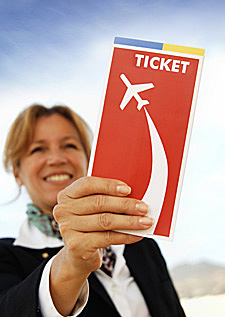Are short-term missions just "holy holidays'?
The question burned in my mind as I sat in a Wattle Grove sitting room, waiting to meet Samuel Stevens, the president of the India Gospel League (IGL) who was visiting Australia.
I was part of a group of young people planning a month-long trip to southern India: teaching in schools, speaking in churches, that kind of thing. But when I added up the combined cost of the trip - $20,000 " a heavy, guilty weight had settled on my heart.
Were we kidding ourselves? Was this short-term mission thing just a junket? A baptised adventure holiday?
IGL is an incredibly dynamic organisation, planting some 5000 churches amongst seriously poor people. Twenty grand would go a long way for them.
Could a bunch of underqualified youths with no foreign language skills be any kind of help? Would we just place extra burdens on the gospel workers already there?
Sam Stevens arrived and I earnestly blurted out my question.
"Are we better just to give you that money instead?"
He didn't answer straight away.

1,000,000 short-termers a year
Short-term mission trips have become the key way that most western Christians experience cross-cultural mission: 1,000,000 Americans went on these trips in 2003, and they are similarly prevalent in Australian church culture.
Most mission thinkers agree that for lasting relationship-building, and to complete projects effectively, long-term, well-prepared missionaries are essential.
But Rick Sirico from International Teams, and member at St Paul's, Castle Hill, is adamant that short term missions " the term can mean anything from a three- or four-week trip to a year-long placement - can also be useful if they're prepared for in the right sort of way.
For most short-termers, he says, their focus is on what they can achieve.
"We try to shift that focus," he says. "Not that we don't want them to serve, but the primary purpose is less about what you're going to do, and more about what God's going to do in you."
"Their whole worldview can be challenged and shaken, and they start to see what God wants to be different in them."
He says that the question of whether or not short-term missioners go on to long-term overseas mission misses the point.
"It's when they come back: what are they doing? Are they growing in faith?"
He says he sees short-termers return with their perspectives radically changed, their prayers wide-ranging, and their giving increased.
And, he says, plenty of them do go on to do long-term mission work.
Effective short-term mission?
There are risks: there are the horror stories of cultural insensitivity and good intentions: mission teams coming to build houses for the poor and unintentionally depriving local tradesmen of work.
Rick says that good preparation is essential.
"Make sure people are trained: that they can share their testimonies, are ready for different cultures as well as teamwork and conflict resolution."
The second component, he continues, is good preparation on field: missioners need to be well-lead and well-matched to their tasks.
"And good debriefing," he concludes. "We do things like helping people with Bible reading and journaling: getting people to see what God is saying to them through his word and their environment."
The church back home
Faith Blake, the Mission Personnel Secretary for CMS Australia, says that sending short-term missionaries " particularly for a few months to a year - can have a powerful impact on the sending church as well.
"The difficulty for Australians is we think we're the middle of the earth," she says. "When short-termers go away, suddenly their church is interested in that part of the world."
She says that the sort of cross-cultural experience that short-term missions provide can be particularly helpful in a multicultural context like Australia.
"You appreciate that people learn differently and have different world views," she says.
"And you may slot in better with people from different cultural backgrounds."
But she adds that Christians don't have to go overseas to become focused on God's work.
"Look at the number of CMS missionaries who started out through beach mission," she says.
Holy holidays?
So, then, what did Sam Stevens say? Here was a man well acquainted with his country's dire spiritual and material needs. He knew the score.
His answer surprised me a great deal.
"I'd rather have the mission team come, every time."
He smiled. "Because when you go back to your churches you are a far greater asset to them - and to us - because you have come."






















